Opinion
Courts Must Stop Meddling In Party’s Internal Affairs
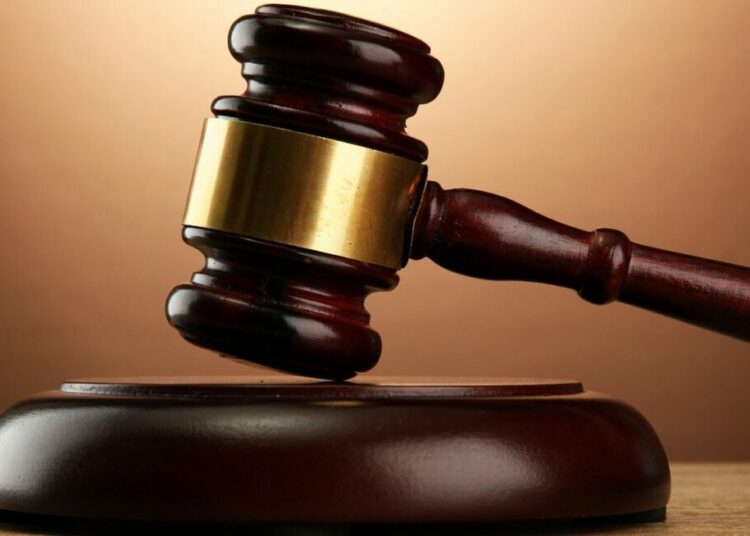
Nigeria’s main opposition political party the Peoples Democratic Party (PDP) held its elective National Convention recently in Ibadan, the capital of Oyo State, on Saturday and Sunday, November 15–16, 2025. But the prelude to the convention was marked by a deluge of court cases for and against the conduct of the exercise.
The controversies spawned from long-lasting internal power struggles and deep factionalisation, which crystallised into the resort by various parties to the courts with conflicting objectives of stopping or sustaining the exercise.
The first court ruling was on October 31, 2025, by Justice James Omotosho of the Federal High Court in Abuja, who ruled against the staging of the convention in a suit filed jointly by some aggrieved party members on the grounds that congresses had not been held in several states to justify the convention, as provided for in the party’s constitution. The trial judge, James Omotosho, ordered a stoppage of the convention until the party complies with its own constitution.
SPONSOR AD
Another ruling was by an Ibadan High Court presided over by Justice L. A. Akintola in an ex parte motion filed by Folarin Adelabu, requesting the court to order the holding of the convention. Justice Akintola granted the ex parte order on which the convention eventually held and new national officers were elected. Adelabu’s motion relied on an earlier Supreme Court order which restricted courts from entertaining matters bordering on leadership and membership of political parties, as such were purely internal matters of the respective parties.
On November 14, 2025, Justice Peter Lifu of the Federal High Court, Abuja, ruled in a suit filed by former governor of Jigawa State, Sule Lamido, contesting his denial by the party of an opportunity to obtain a nomination form to contest the office of the National Chairman. The trial judge ruled in favour of Lamido on the ground that PDP was duty-bound to avail him of the rights provided in the party’s constitution by allowing him to contest as an aspirant for his desired office.
We at the Daily Trust are worried that the courts are being dragged to resolve disputes that are internal affairs of political parties more than 20 years since the return to democracy.
The situation remains more worrisome given the fact that the Supreme Court of Nigeria had earlier ruled against judicial intervention in internal affairs of parties, and hence should not be entertained by courts.
For instance, the Supreme Court in a 2021 ruling on the legitimacy of the Governor Mai Mala Buni executive of the APC in the nomination of Governor Rotimi Akeredolu as raised by Eyitayo Jegede of the PDP.
Jegede had claimed that the signing of Akeredolu’s nomination certificate (Exhibit P21) by the APC’s caretaker committee led by Governor Buni of Yobe State was invalid based on Section 183 of the Nigerian Constitution, 1999 and Article 17(iv) of the APC Constitution.
In a majority decision, Justice Emmanuel Akomaye Agim, ruled that the matter could not be decided without joining Buni as a party in the matter.
He further ruled that: “Those are non-justiceable questions. Courts have no jurisdiction over the internal affairs of a political party except where a statute expressly gives a court jurisdiction to deal with any internal affairs of a political party.” There are many other examples.
However, rather than comply with the ruling of the Supreme Court, the nation’s political space is suffused with different interpretations of the verdict, with each party twisting the letters of the ruling as suits its interests. This is exactly what transpired in the recent cases involving the PDP over its convention.
Seen in context, the situation signposts the descent of the country to the piloting of the affairs of political parties—not by internal democracy and consensus in the parties, but by pronouncements from the benches of high courts, who are ordinarily remote from the inner workings of the respective parties. By the same token, this situation is bringing the country back to when the processes of internal democracy would no more matter and the Nigerian democratic project would die a slow and agonising death.
That is why the country’s judiciary—especially the National Judicial Council (NJC)—needs to wake up to its statutory responsibility of ensuring rectitude in the administration of justice in the Nigerian political space, and address itself to such aberrant tendencies, where courts shall flagrantly disregard the authoritative pronouncements of the Supreme Court and embark on solo adjudicatory ventures.
Daily Trust also believes that there is the need for the Nigerian Bar Association (NBA) to prevail on its members to heed the ruling of the apex court in respect of undue interference in the internal affairs of political parties in order to minimise the incidence of parallel judgments by the courts.
Meanwhile, it is also important for politicians to exhaust the extant internal administrative provisions and processes in their party constitutions, as well as guidelines, before taking up matters to the courts where they wash their dirty linens in the courts.
The success of any democracy largely depends on the ability of politicians to work towards common ground in the interest of the country. It is obvious that from the return of democracy in 1999, Nigerian politicians think more of what they will gain from politics and are always ready to go to the extreme to realise that selfish interest.
•Editorial By Daily Trust Newspaper
-

 Metro17 hours ago
Metro17 hours agoApologies from VDM and Mr Jollof Won’t Stop Ongoing Probe – Airline Insists
-
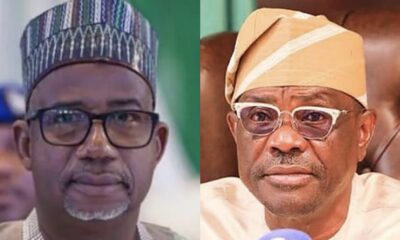
 Politics17 hours ago
Politics17 hours agoArrogant Wike polluting Nigeria’s political space, destroying democracy – Bala Mohammed
-
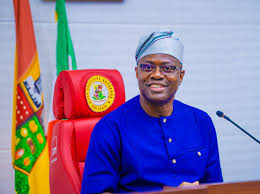
 Politics17 hours ago
Politics17 hours agoWhy I parted ways with Wike, by Makinde
-
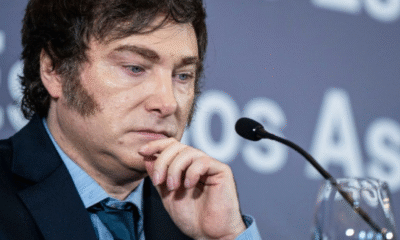
 Business14 hours ago
Business14 hours agoArgentina President Milei Embroiled In Alleged Crypto Fraud
-

 Business16 hours ago
Business16 hours agoInternet banking overtakes ATM, PoS as transaction values surge to ₦542.98trn
-
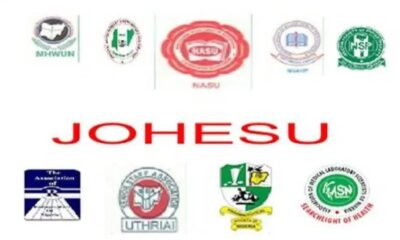
 News17 hours ago
News17 hours agoHealth Workers’ Strike Paralyses Hospitals
-

 Business14 hours ago
Business14 hours agoSpectranet, Starlink, FibreOne capture 65% of customers as Nigeria’s ISP market shrinks
-
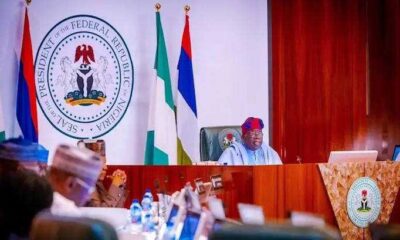
 News17 hours ago
News17 hours agoTinubu sends Shettima to Kebbi, assures rescue of abducted schoolgirls
